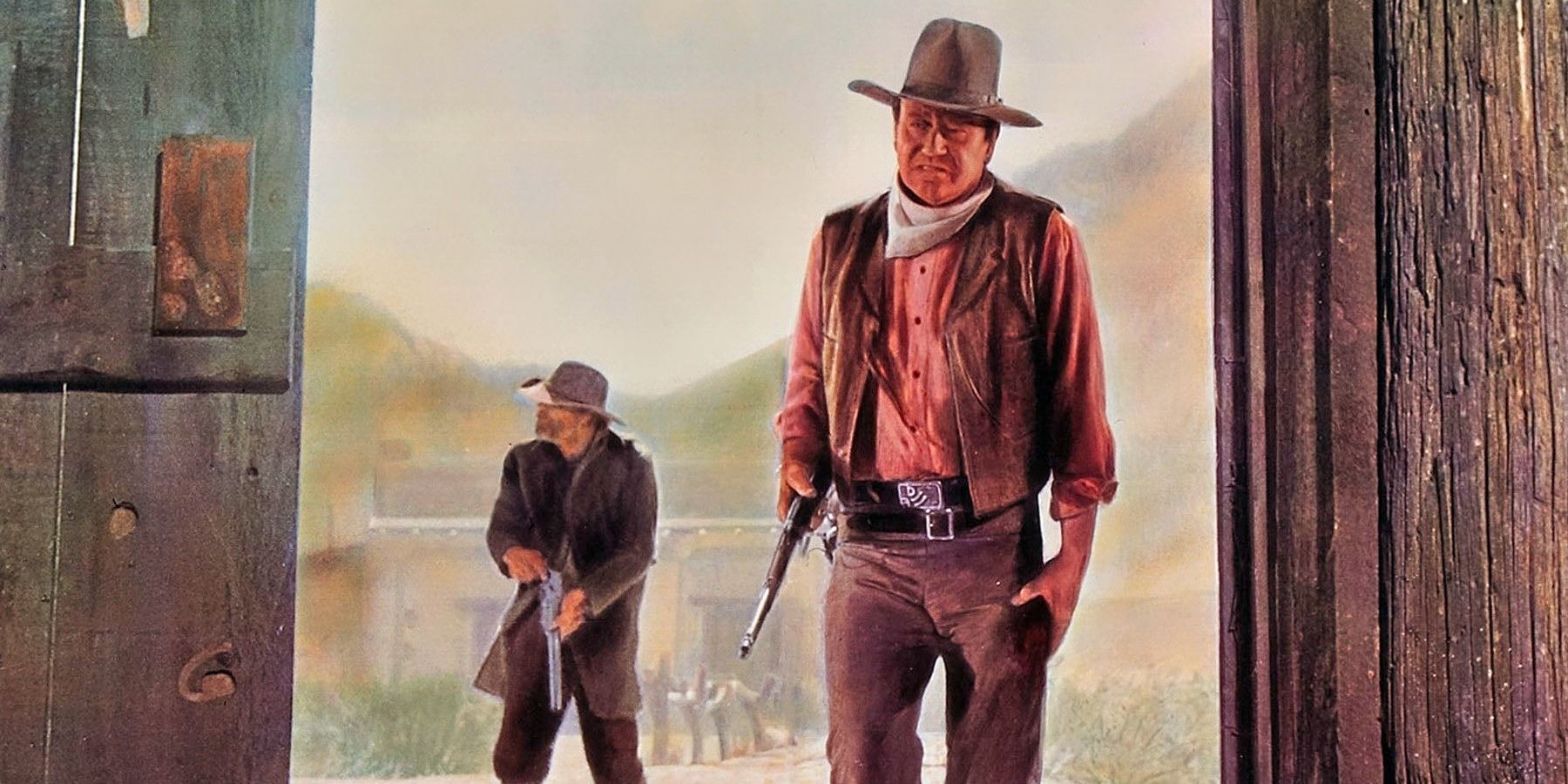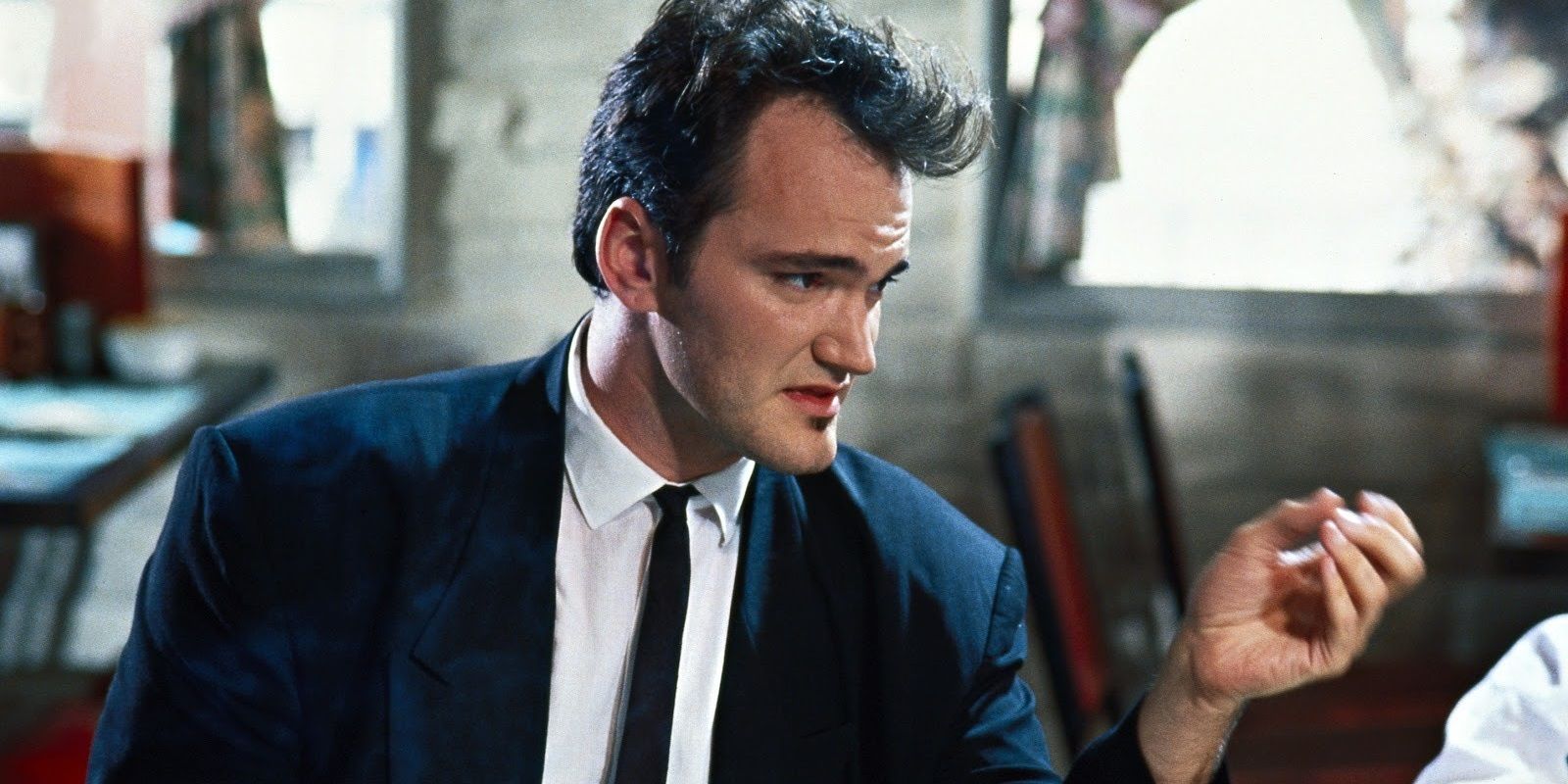The mediocre John Wayne Western Rio Lobo helped convince Quentin Tarantino he has to retire early. Howard Hawks is regarded as one of the greatest American filmmakers who ever lived, and a glimpse at his filmography makes it easy to see why. Hawks is a director who made a great film in just about every genre, from comedy (His Girl Friday) to noir thrillers (The Big Sleep), Westerns (Red River) and even horror with his uncredited work on 1951's The Thing From Another World - which was later remade. One of Hawks' most influential works is Rio Bravo, a 1959 Western that teamed him once more with John Wayne.
Rio Bravo saw Wayne's isolated sheriff having to rely on some unconventional help when holding a dangerous prisoner in his town. The movie's style and dialogue made it a success and it's heralded as a genre classic. It's also one of Quentin Tarantino's favorite movies, and he once claimed that if he was getting serious about a new girlfriend he would screen Rio Bravo for them; if they didn't enjoy it, he would apparently end the relationship. Rio Bravo is also a favorite of John Carpenter, who made a loose remake of it with both Assault On Precinct 13 and Ghosts Of Mars (which was Jason Statham's first action role).
Hawks himself was so fond of Rio Bravo he made two variations of the same theme, all starring Wayne. The first was 1966's El Dorado and the last was 1970's Rio Lobo, which cast Wayne as a Union cavalry officer chasing down traitors who helped Confederates stage a robbery on a payroll train, which leads him to the dangerous town of Rio Lobo. Despite being helmed by Hawks, Rio Lobo is something of a slog that runs through many genre cliches without offering anything fresh or inventive. The movie was also a critical and financial failure, with Hawks later blaming its reception on Wayne being too old. While Tarantino - who has made many movie cameos - is a major Hawks fan and adores Rio Bravo, he revealed in 2010 that Rio Lobo is the film that convinced him he had to retire before he fell out of touch with audience tastes.
Taking to American Cinematheque (via Deep Glamour), Tarantino stated of his own work that he wants "... to live or die by that filmography" because even the greatest filmmakers eventually lose their touch. He continued that "... the most cutting-edge artist, the coolest guys, the hippest dudes, they’re the ones that stay at the party too long. They’re the ones that make those last two or three movies that are completely out of touch and do not realize the world has turned on them." Citing a desire for his work to be discovered in the decades ahead by a teenager who has never heard of him, Tarantino wants every movie to feel of a piece and that "But I don’t want to make Cheyenne Autumn, I don’t want to make Rio Lobo."
Cheyenne Autumn was one of the last films - though not the last - films by director John Ford, while Rio Lobo marked the end of Hawks' long career. Given the embarrassment of riches that is most of Hawks' - whose 1932 Scarface was banned - work, closing out on the mediocre Rio Lobo is a disappointment, and it would be easy to see why Tarantino wants his last project to be something more vibrant. Tarantino has spoken of his reasons for wanting to end on a strong note many times, but it's interesting that he specifically cites Hawks and movies like Rio Lobo as examples of why.


